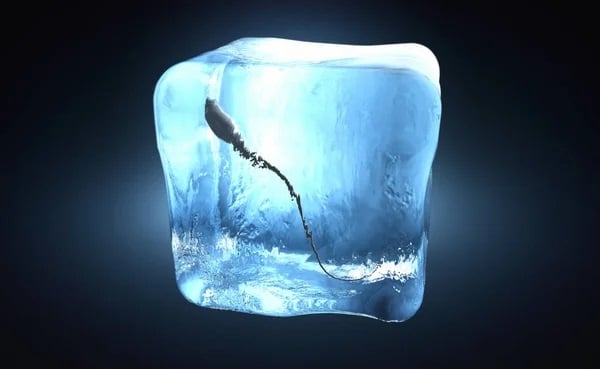A new study has maintained that frozen sperm is as effective as fresh semen for infertility treatment.
The primary benefits of freezing sperm are to allow a man to preserve his fertility by using his sperm at a later date.
Cryopreservation has become the world’s favoured method of sperm storage, making it a regulatory requirement for donor samples in IVF treatments.
This period of quarantine, which allows screening for infections before use, usually lasts up to six months, although personal samples stored as a means of male fertility preservation may be longer.
However, despite widespread use, there are frequent concerns among IVF patients that cryopreservation might reduce the viability of the frozen/thawed sperm cells, affecting their motility, structure, and DNA content.
A study published on July 4 by the European Society of Human Reproduction and Embryology (ESHRE) ruled that the use of cryopreserved sperm instead of fresh is not associated with inferior outcomes.
The study analysed a range of outcomes following IUI (intrauterine insemination) treatments with either fresh or frozen sperm, which included a positive pregnancy test (hCG), clinical pregnancy, and miscarriage rate.
This was based on an analysis of 5335 intrauterine insemination cycles performed between 2004 and 2021.
It observed the type of ovarian stimulation either given or not given to women before their IUI treatment.
Panagiotis Cherouveim, a researcher from Massachusetts General Hospital and Harvard Medical School in the US, presented the results of the study on Monday.
The study found no difference in pregnancy rates between cycles using cryopreserved or fresh sperm samples.
“Although specific subgroups might benefit from fresh sperm and time-to-pregnancy might be shorter with fresh than frozen sperm, patients should be counselled about the non-inferiority of frozen sperm,” said Cherouveim.
“The fact that our data did not reveal any significant difference in success between the utilisation of fresh ejaculated and frozen sperm, except in a subgroup of patients given oral ovulation-inducing agents, is very reassuring to all involved.”
The latest study is corroborating the 2013 research which ruled that cryopreserved sperm isn’t inferior to fresh sperm.
Picture credit: Depositphotos
Copyright 2025 TheCable. All rights reserved. This material, and other digital content on this website, may not be reproduced, published, broadcast, rewritten or redistributed in whole or in part without prior express written permission from TheCable.
Follow us on twitter @Thecablestyle

